Letters from Yuliia Hlynska to Anastasia Kuzyk concerning the forthcoming holiday in the village of Butsniv
Letter 1, undated, circa 1890-1892
My dearest Nastia,
Yesterday, I went to Ternopil and bought 50 cucumbers, which I’ll start fermenting right away. If you want to make mizeria,[1] just buy however of them you need.
I’ll buy cauliflower on Friday.
Make sure to order at least 4 brains from Moshkova (Moshka’s wife) or do whatever you can, so you’re certain to have them.
I’ve arranged for crayfish and strawberries. Also, I’ll get some peas, sour cream, cream, and two kilos of butter.
I’ll bake some table bread. If it doesn’t turn out well, I’ll buy some in town.
I’ve written to Father[2], but haven’t received a response yet. Do you have any young ducks for pate? Get two veal livers for the pate as well. Get a kilo of almonds for ozszadu (illegible).
On Friday, the cook and Yulka, his assistant, will come for the table preparations. Why hasn’t the priest[3] written if I should bring oats?
Should I bring glasses and tumblers? I have some very nice ones.
If there’s anything else needed, please let me know promptly, as I may have forgotten something.
There will come a cart on Friday, so I need a passport na tela (illegible)
Buy some mushrooms, too.
Generally, whatever you deem necessary, as I could have forgotten something you need?
Y. Hlynska
Letter 2, undated, in response to the previous one
Nastia!
I’m sending a cook your way. Perhaps he’ll make obazinoczkiw (illegible) or something else, and you can either go yourself or send someone to Ternopil to buy bread, brynza,[4] cream, and anything else you think you might need: andruts,[5] brains. Or maybe Pan[6] can go? I’m sending 5 loaves of bread, sour cream, and a bit of cream, as the cows aren’t yielding much milk. We don’t need cauliflower if there are some honey mushrooms, but it’s up to you. Whoever is coming, please hurry, as I’d like the horses back in Cherniv (Cherneliv-Ruskyi, ICh) by nightfall. I’ll come a little later. If I pass through Ternopil and you’re there, I can give you a lift in the cart.
Notes:
[1] A salad comprising thinly sliced or grated cucumbers, typically dressed with sweet sour cream or kefir, and occasionally vinegar, though sometimes oil may be used instead.
[2] This is how Yuliia referred to Isydor Hlynskyi in her letters to Anastasia Kuzyk.
[3] Ibid.
[4] A sheep milk cheese made across much of East-Central Europe.
[5] Lightly sweet, flat wafers.
[6] Slavic honorifics in Poland and Ukraine.

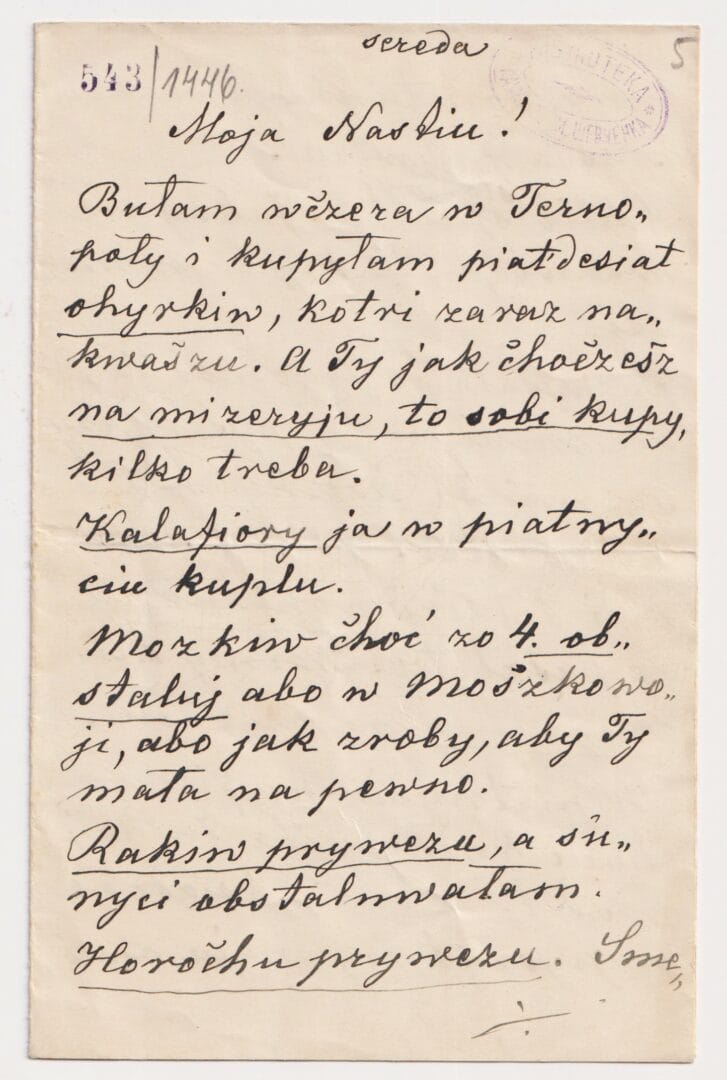
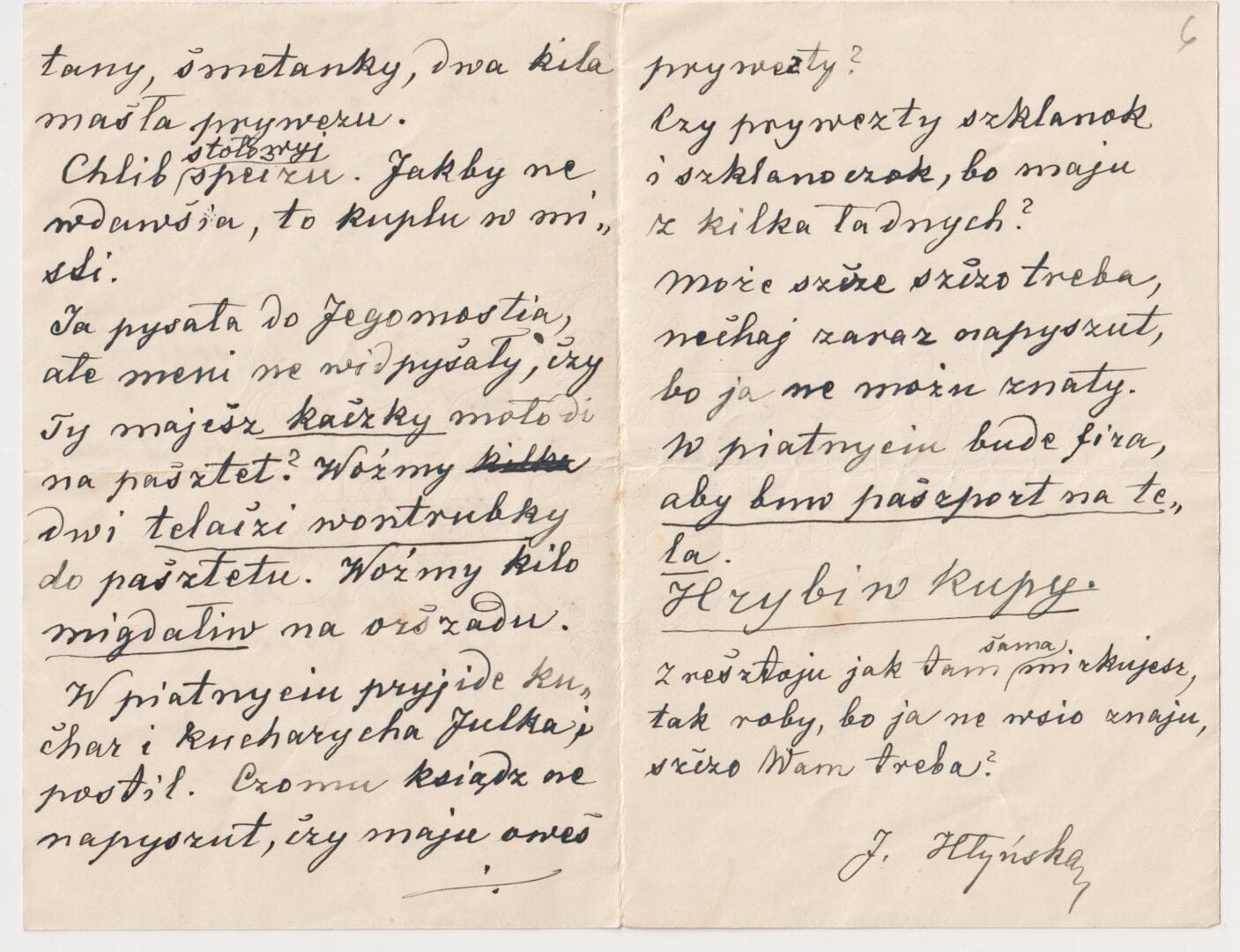
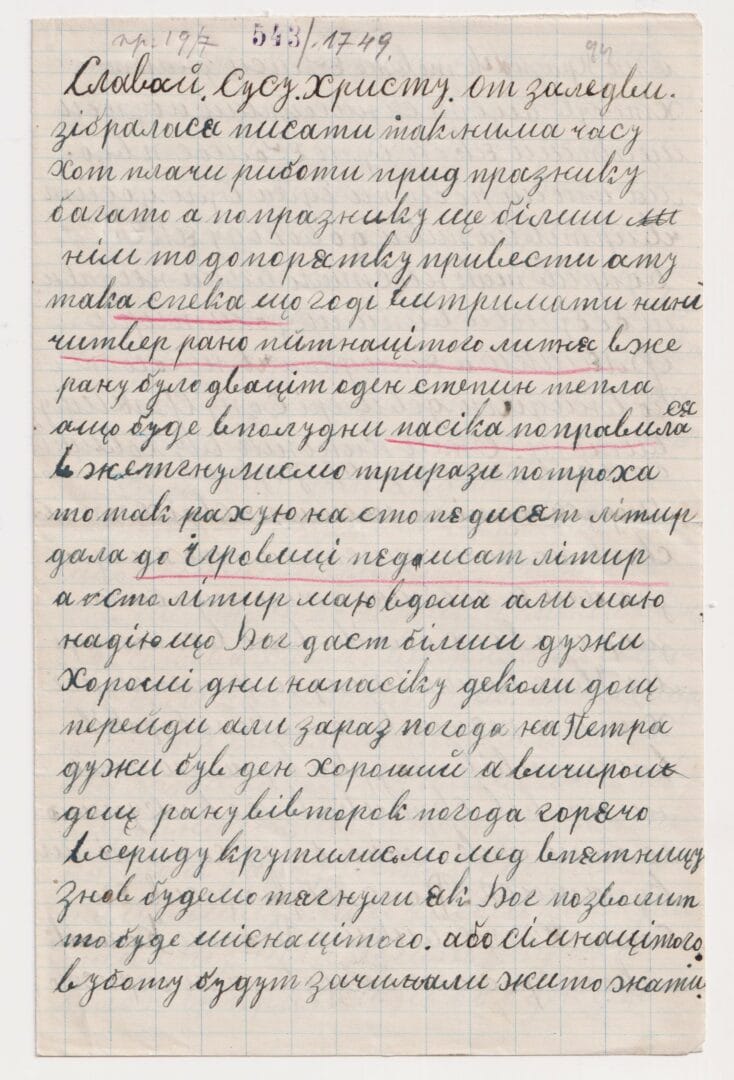
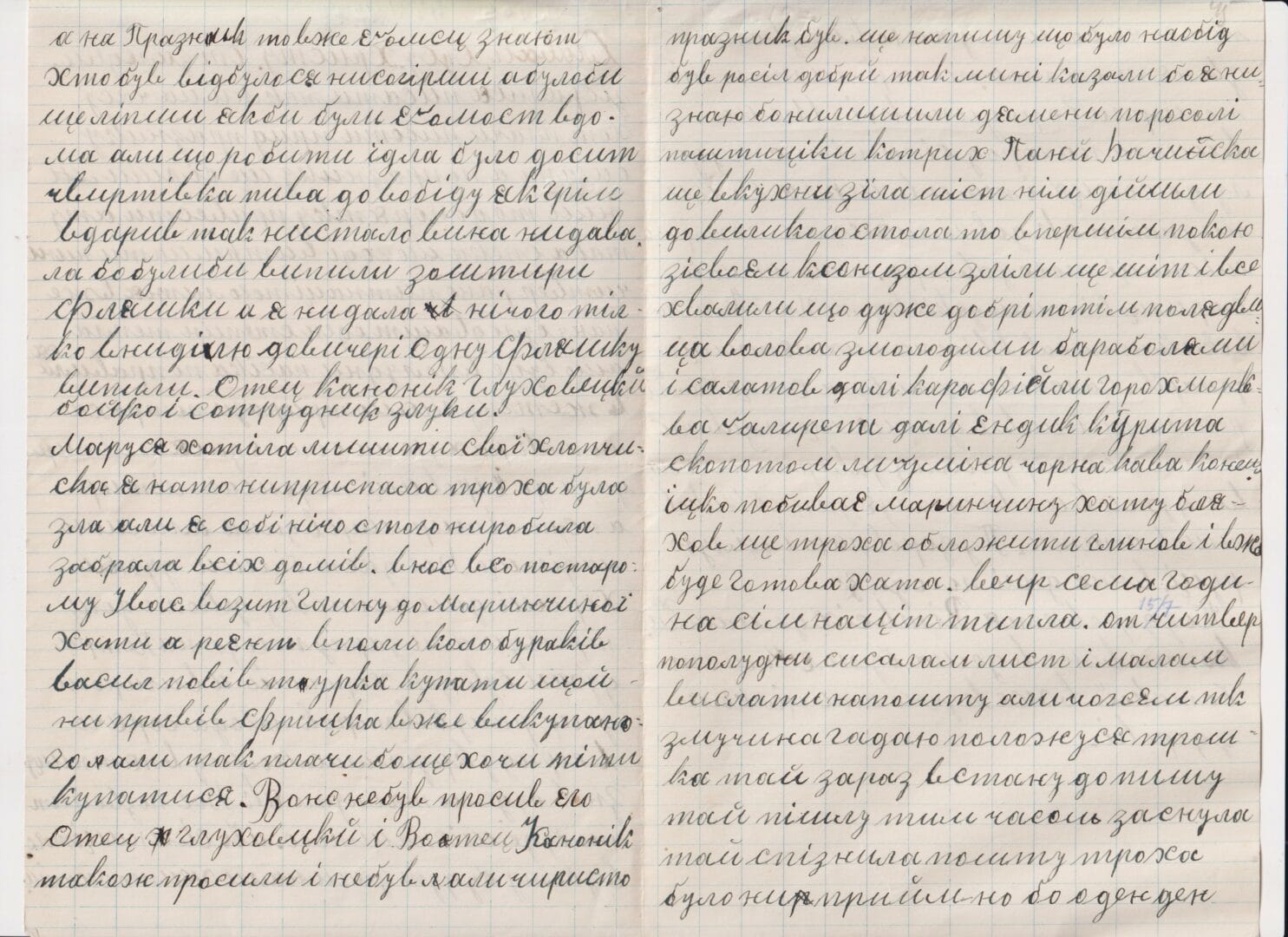
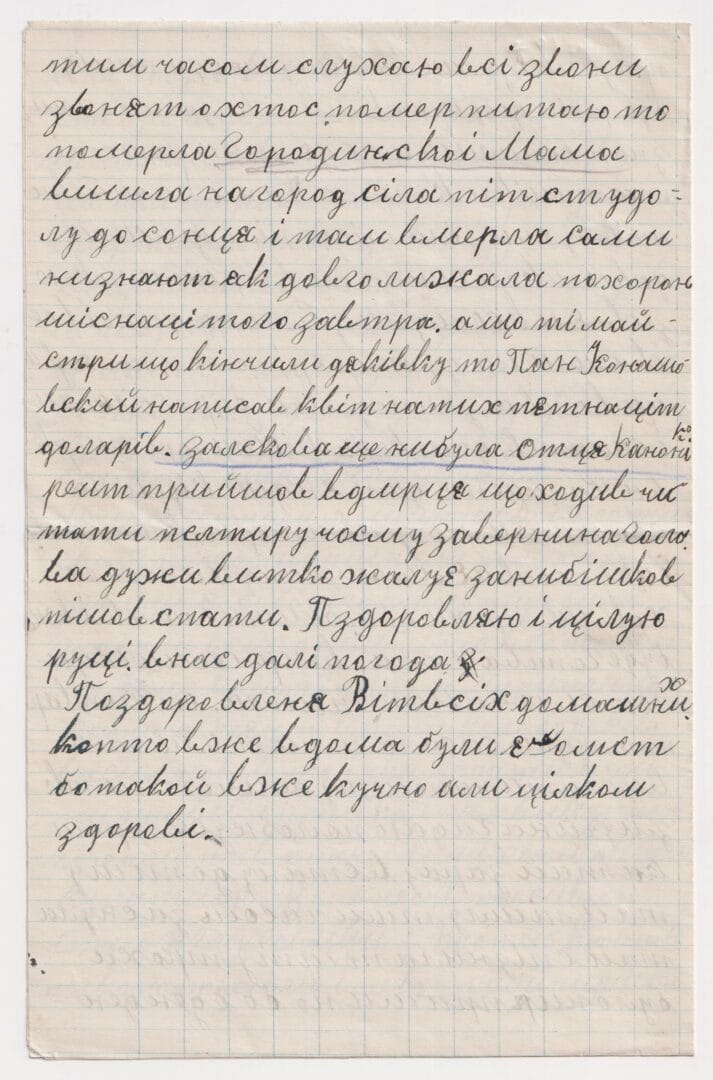

The letters presented here are from the correspondence of the Hlynskyi family: the Greek Catholic priest Isidor Hlynskyi, his mother Yuliia Hlynska (née Bilynska), and Anastasia Kuzyk, the housekeeper in Isidor’s household. They discuss various topics, including the festive menus of church celebrations in the Galician village of Butsniv near Ternopil, where Isidor Hlynskyi served as a priest from 1887 to 1931. The author of the first two letters, dating approximately from 1890 to 1892, is Yuliia Hlynska, the widow of the priest Kuprian Hlynskyi, Isidor’s mother, who lived in Cherneliv-Ruskyi. These letters are written in Ukrainian and transcribed in Latin script. The choice of the Latin alphabet was likely influenced by Hlynska’s Polish education. The third letter presented here is by Anastasia Kuzyk, who managed Isidor Hlynskyi’s household from at least the early 1890s to 1931. Her letter provides a unique glimpse into the local Galician Ukrainian dialect of the time.